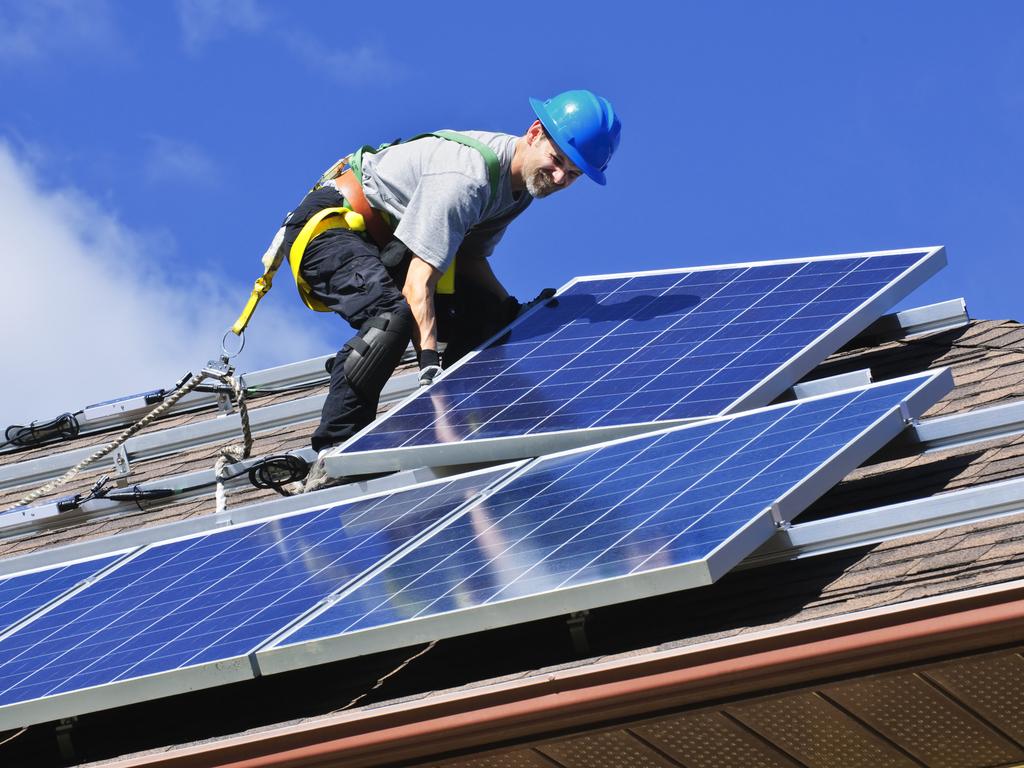Solar panels save households more than 40pc on energy bills, energy department figures show
The results of research by the federal Department of Energy show households fitted with solar panels and batteries often do not receive an electricity bill.
Households which install solar panels can save more than 40 per cent on electricity bills, the results of new research by the federal Department of Energy shows.
The data is likely to intensify calls for a rapid rollout of the renewable energy generation source.
Australia has the world’s largest penetration of rooftop solar, a trend that has grown rapidly in recent years as bills soar and a growing number of Australians move to reduce their carbon footprint.
Releasing the research, federal Cimate Change and Energy Minister Chris Bowen said those households who have solar panels can save hundreds of dollars from their electricity bills. The addition of a 8.5kWh battery can prevent many households across the national electricity market being billed for power.
Only Victorian households with both solar power and a battery would have an electricity bill, the research found, although it would be a fraction of what it would have otherwise been.
“Renewable energy is the cheapest form of energy, and this new data highlights the real difference rooftop solar and batteries are having on household power bills,” Mr Bowen said.
The federal government will hope the findings provide Australians with an incentive to install more solar and batteries accelerate its transition away from coal-generated electricity production.
But solar, and particularly batteries, are prohibitively expensive for many who are dealing with high inflation and rising interest rates.
A solar and battery bundle can often cost in excess of $15,000 – but the research found most households who installed them would be energy independent.
Installing solar alone is much cheaper, thanks to state and federal incentives and as electricity delivery costs rise it’s possible for households recoup the outlay within a few years.
Households in regional Queensland, where there is abundant sunlight, are able to shave nearly 60 per cent off their electricity bill. Victorians see the smallest benefit, but 39 per cent is still a significant saving.
The findings will heighten calls from renewable energy proponents for states and the federal government to increase assistance to make solar and batteries affordable.
The federal government in May said it would allocate $1bn for household energy upgrades. However, it is unlikely to see the mass adoption that industry executives said would significantly accelerate Australia’s energy transition.
Australia has set a target of having renewable energy generate 82 per cent of the country’s electricity by the end of the decade – a key pillar of the plan to cut emissions by 43 per cent by 2030.
But less than 40 per cent of the country’s energy needs are currently being met by renewable energy. Increasing solar and battery take-up would decrease the amount of renewable energy generation that needs to be built.








To join the conversation, please log in. Don't have an account? Register
Join the conversation, you are commenting as Logout